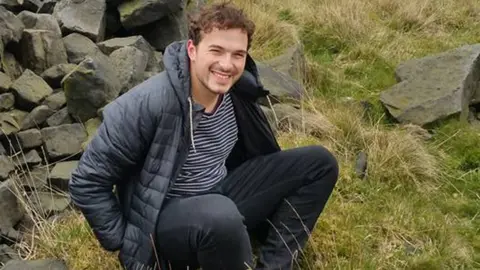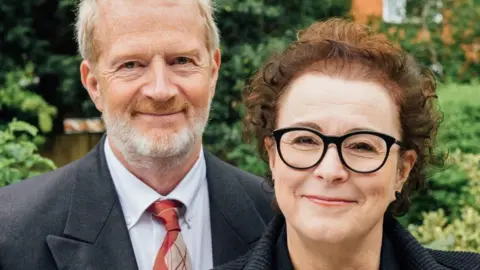Jack Ritchie death: Inquest to consider state's role
 Family photo
Family photoAn inquest is to be allowed to consider whether the state failed in its duty to protect a gambling addict who committed suicide, a coroner has ruled.
Jack Ritchie, 24, from Sheffield, took his own life on 22 November 2017.
His family had said a failure by the UK authorities to treat gambling problems contributed to his death.
Coroner Chris Dorries said there was "a compelling argument" that the provision of medical or psychiatric services to Mr Ritchie had been "insufficient".
Lawyers for the Ritchie family had applied for the full inquest to engage Article 2 of the European Convention on Human Rights, which means that its scope could be expanded to examine if the state breached its duty to protect the citizen's right to life.
At an earlier hearing, the Department for Digital, Culture, Media and Sport (DCMS) argued that it was "not the role of a coroner" to rule on government policy during a fact-finding inquest.
 Joanna Ritchie Photography
Joanna Ritchie PhotographyHowever, Mr Dorries said: "The arguable case here is that the state had not provided the opportunity of meaningful medical or psychiatric treatment.
"In other words, it is arguable that there was a systemic dysfunction in the lack of such provision."
At the pre-inquest hearing on 28 June, he also said the inquest should consider whether Mr Ritchie's parents would have acted differently if given better information by the state about the seriousness of their son's illness.
"I therefore find it is arguable that Article 2 is engaged on the basis of two matters: the availability of reasonable medical treatment and the apparent lack of information that might assist families or others to save their loved ones."
However, Mr Dorries said he was "deeply cautious of the inquest appearing to become involved in the political aspects of safeguarding potential problem gamblers - for it cannot and must not do so".
He said any requirements on government agencies must be proportionate so as not to place "an impossible burden on the state".
Mr Ritchie, whose gambling addiction began in 2010 when he was 17, took his own life seven years later in Hanoi, Vietnam, where he had been teaching English as a foreign language.
On the day of his death, he emailed his parents saying he had not fulfilled his promise of installing anti-gambling software and had been gambling all day.
Mr and Mrs Ritchie said they were "pleased that the failure of the state to protect their son's life will now come under intensive scrutiny and welcome the potential of this inquest to save many lives in the future".
Correction 3 September 2019: This report was initially sourced from agency copy, however the BBC has now amended the article following further information from the coroner's report.

Follow BBC Yorkshire on Facebook, Twitter and Instagram. Send your story ideas to [email protected].
